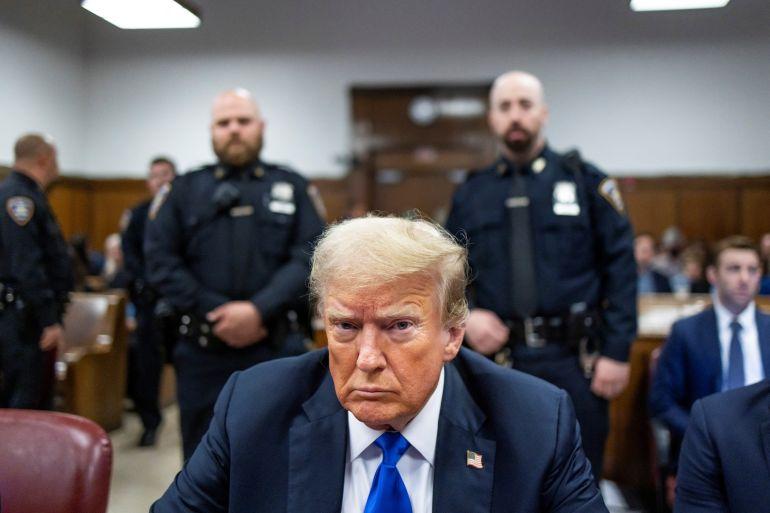The Supreme Court's ruling on presidential immunity has experts concerned about the implications for the rule of law and presidential powers in the United States.
Washington, DC – The recent Supreme Court ruling regarding the extent of presidential immunity is expected to have a significant impact on the US government. Experts caution that this decision could erode the rule of law in the country.
On Monday, the Supreme Court deliberated on the expansive immunity claims made by former President Donald Trump, asserting that his actions while in office were shielded from prosecution. This comes as Trump faces criminal charges related to his actions in the final days of his presidency, particularly concerning the 2020 election controversy.
The court's decision granted Trump a partial win by declaring that former presidents cannot be prosecuted for official actions taken during their tenure. The majority opinion stated that Trump is at least entitled to presumptive immunity.
This ruling is likely to postpone Trump's criminal cases past the upcoming presidential elections in November. It will necessitate a lower court to determine what actions constitute official presidential duties.
Beyond the immediate implications, legal expert David Super from Georgetown University believes that the ruling will have a profound effect on presidential authority, describing it as a fundamental transformation of the presidency.
The Supreme Court justices were divided, with the conservative justices supporting the ruling while the liberal counterparts opposed it.
The majority argued that without immunity for official actions, a president could face retaliatory legal actions from political adversaries post-presidency. However, Chief Justice John Roberts emphasized that presidential immunity has limits, stating that not all actions of the President are shielded from legal consequences.
Although the court's decision safeguards certain official actions, concerns are raised regarding the potential consequences on the Justice Department's independence. By considering Trump's conversations with department officials as official actions, there are fears that this could compromise the department's autonomy.
The dissenting opinion criticized the ruling, highlighting the risk it poses in allowing future presidents to act with impunity, potentially subverting the law to their advantage.
In a TV interview, Professor Claire Finkelstein expressed concern over the ruling, emphasizing its long-term implications. She warned that the decision might empower future presidents to manipulate the law for personal gain.
Political historian Matt Dallek condemned the ruling as an attack on constitutional checks against abuse of power, emphasizing the dangerous precedent it sets.
The dissenting Justice Sonia Sotomayor strongly opposed the ruling, underscoring the magnitude of granting immunity to the President for official acts.
In summary, the Supreme Court's ruling on presidential immunity has sparked debates regarding the balance of power, the rule of law, and the limits of presidential authority in the United States.
Source: ALJAZEERA
ALJAZEERA MEDIA NETWORK
